
Getting paid for construction work or materials can be a challenge. In the 2020 Q3 National Construction Payment Report, results from a survey of 600 contractors across the U.S. highlights just how wide the payment gap has spread: When compared with subcontractors and suppliers, General Contractors are twice as likely to get paid on time. Unsurprisingly, they’re much happier about it.
Because construction payments are made in a waterfall process, those at the top get paid first, and money trickles downward, changing hands each time. The top-down approach to payment means the problem doesn’t affect construction businesses equally. Those at the bottom have to wait for multiple people to handle their funds before they ever see a check.
GCs twice as likely to get paid within 30 days
According to the survey, General Contractors are twice as likely to get paid within 30 days of invoicing for their work.
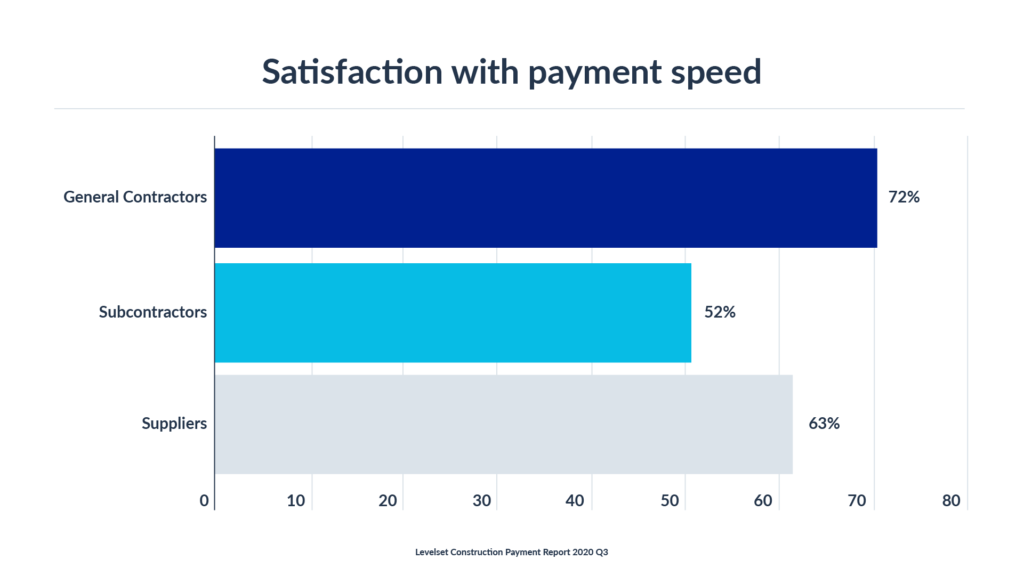
Nearly 2 in 3 GCs (74%) say they get paid within 30 days, while 37% of subcontractors — and only 33% of suppliers — report the same. In fact, 29% of subs say that, on average, it takes longer than 45 days to receive payment.
30 days is largely accepted as the industry standard for payment timing. In a survey from earlier this year, 91% of contractors and subs say their contract terms require payment within 30 days. Unfortunately, only about 1 in 3 sub-tier parties say that, on average, they actually receive it in this time frame.
Subs & suppliers happy with slower payment
Somewhat surprisingly, subs and suppliers don’t just accept slower payment — they are actually happy about it. More than half of subs (52%) report a high level of satisfaction with how quickly they get paid. Suppliers, the slowest paid of the bunch, are even happier: 63% are happy with payment speed.
That isn’t a coronavirus effect, either. In the previous survey, 53% of all contractors (GCs and subs) said they were happy with how quickly they receive payment.
GCs 3x as likely to receive a deposit
The gap between construction companies begins well before the first payment application is sent. Lest you complain that the days of upfront deposits are gone in construction, consider this: 37% of GCs say they always receive an advance payment. Unfortunately, they’re not as willing to extend the offer to the companies they hire. Only 13% of subcontractors get a deposit.
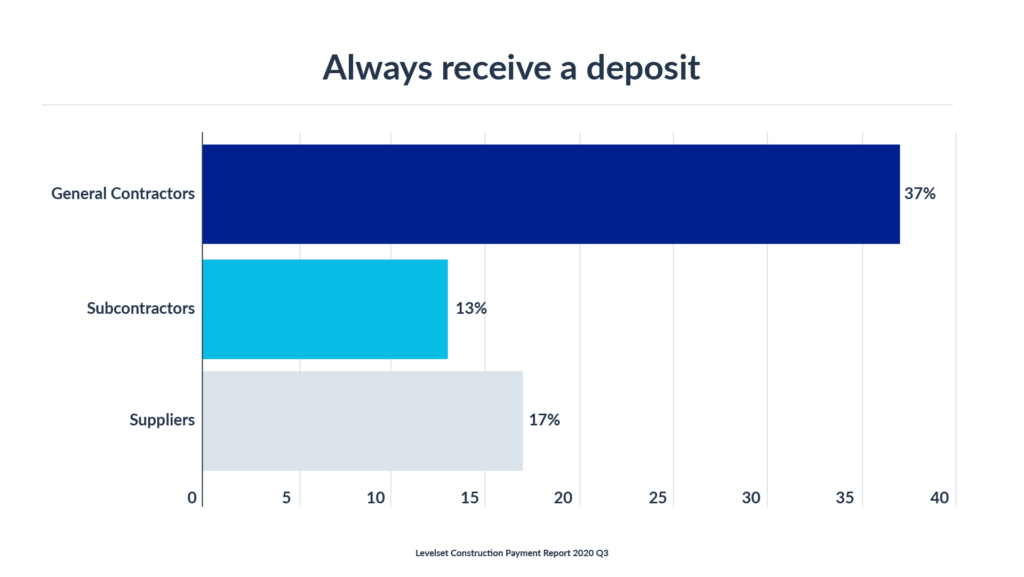
As a result, subcontractors often resort to paying for their materials on credit or by front loading their payment application. As one survey respondent noted, they are often forced to front load their payment requests in order to collect funds to pay their own subs and suppliers.
Contractors blame GCs & owners for slow payments
The payment process is complicated, and every project is unique. When payment is late, it stands to reason that a number of factors could be involved.
But according to the survey, two parties carry most of the blame: Property owners and general contractors. 38% of all contractors say slow payment is primarily caused by the property owner’s cash flow problems. More than 1 in 4 blame payment delays on poor management by the GC.
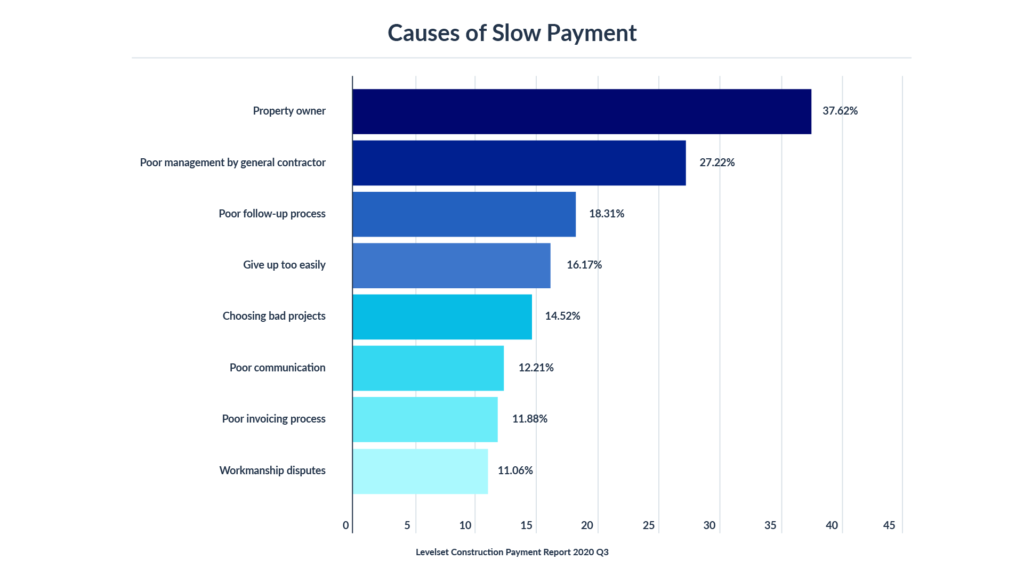
Only a fraction say that payment delays are caused by workmanship disputes (11%) or communication problems (12%).
Subcontractors reluctant to take action
Slow payments have the greatest impact on subcontractors, but subs are less likely than GCs to take actions that speed up payment. While 36% of GCs charge interest on late payments from their customers, only 22% of subs consider imposing a penalty on the GC when payments are overdue.
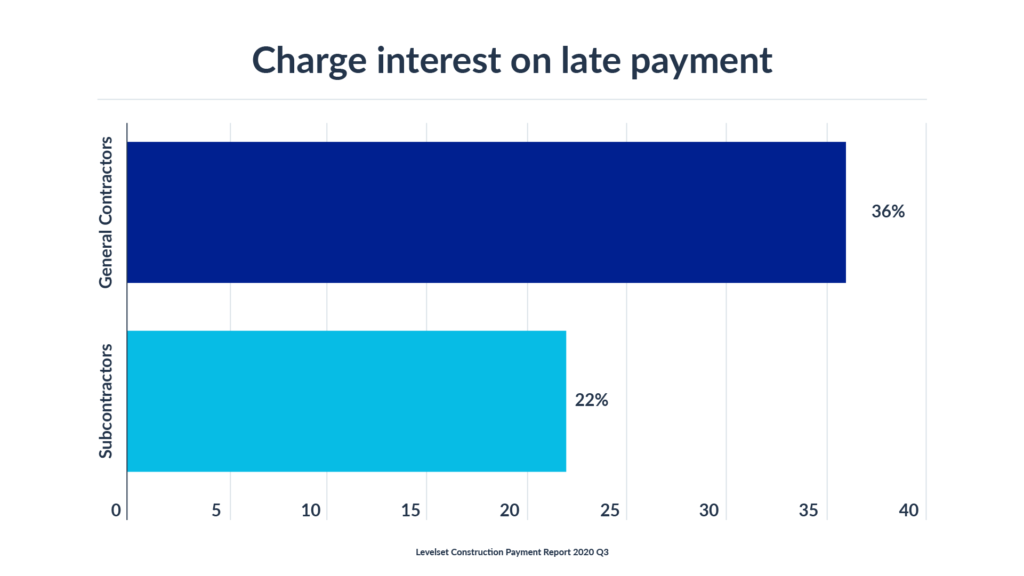
And even though the mechanics lien is one of the most powerful payment tools available to contractors, only 45% of subcontractors say they always protect their right to file a lien.
The Key to Faster Payment: Better communication
According to the survey, the three biggest factors that help contractors get paid faster boil down to one thing: Better communication.
The top 3 factors that contribute to faster payments:
- Setting clear expectations with customers: 48%
- Good communication with customer: 47%
- Good invoicing process: 45%
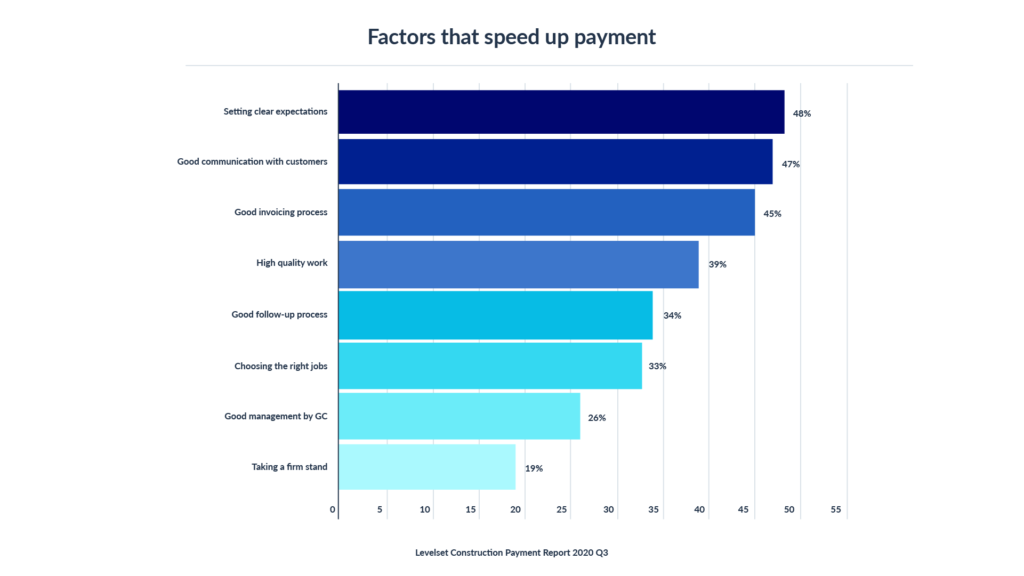
Good communication is an ongoing, active process that begins well before a payment deadline. On a construction project, this process includes sending preliminary notices, sharing complete documentation with payment applications, sending invoice reminders, and exchanging lien waivers in a timely fashion.
Many subcontractors are reluctant to take action when payment is late out of a fear of alienating their customers. This is a problem easily solved by communicating about payment expectations — and consequences — from the start.
Rethinking the Payment Waterfall
Payment problems in construction are often the direct result of the waterfall structure of payments. Each time a payment changes hands, there is opportunity for delay and higher risk for disputes.
The gap between those at the top of the project’s food chain and those at the bottom is made worse by poor communication and low visibility. The bigger the project the harder it is for the owner and GC to see everyone on the job, and ensure they get paid.
In an effort to reduce payment delays, especially for those furthest down the chain from the property owner, many in the industry are rethinking the payment process.
Several US states have enacted laws requiring construction trust funds be set up to protect sub-tier parties and prevent project funds from being misappropriated. Some parties in Ireland have called for the elimination of retention entirely.
And perhaps most promising, some projects in the UK have begun using project bank accounts that allow the owner to make simultaneous payments to everyone on the job once payment applications are approved.
Slow payments continue to be a problem for construction companies, with subcontractors and suppliers bearing most of the burden. While global initiatives to address the imbalance are promising, companies can and should take individual steps to get paid faster. Faster payment benefits everyone in the industry, helping to improve cash flow, reduce project delays, and avoid costly payment disputes that can put the property title in question.
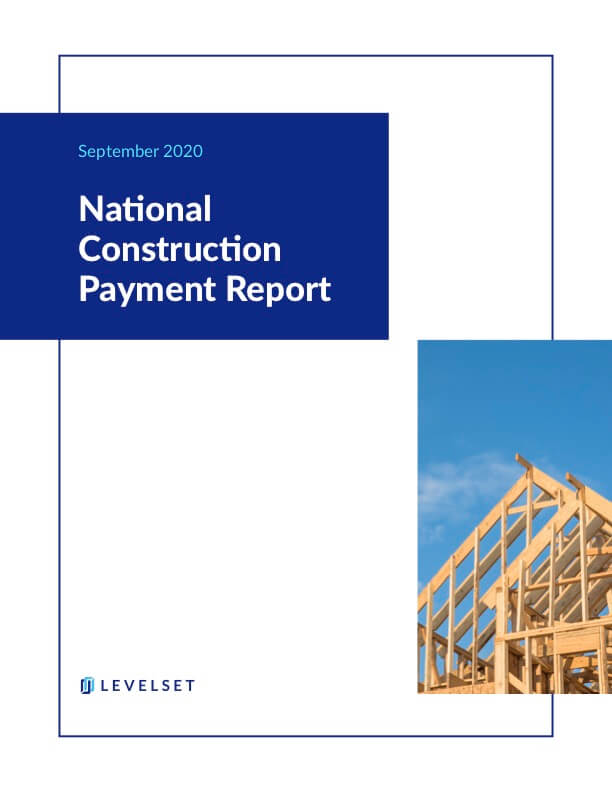
Get the report
Download the 2020 Q3 Construction Payment Report to view the full survey results and learn how the rest of the industry is doing.